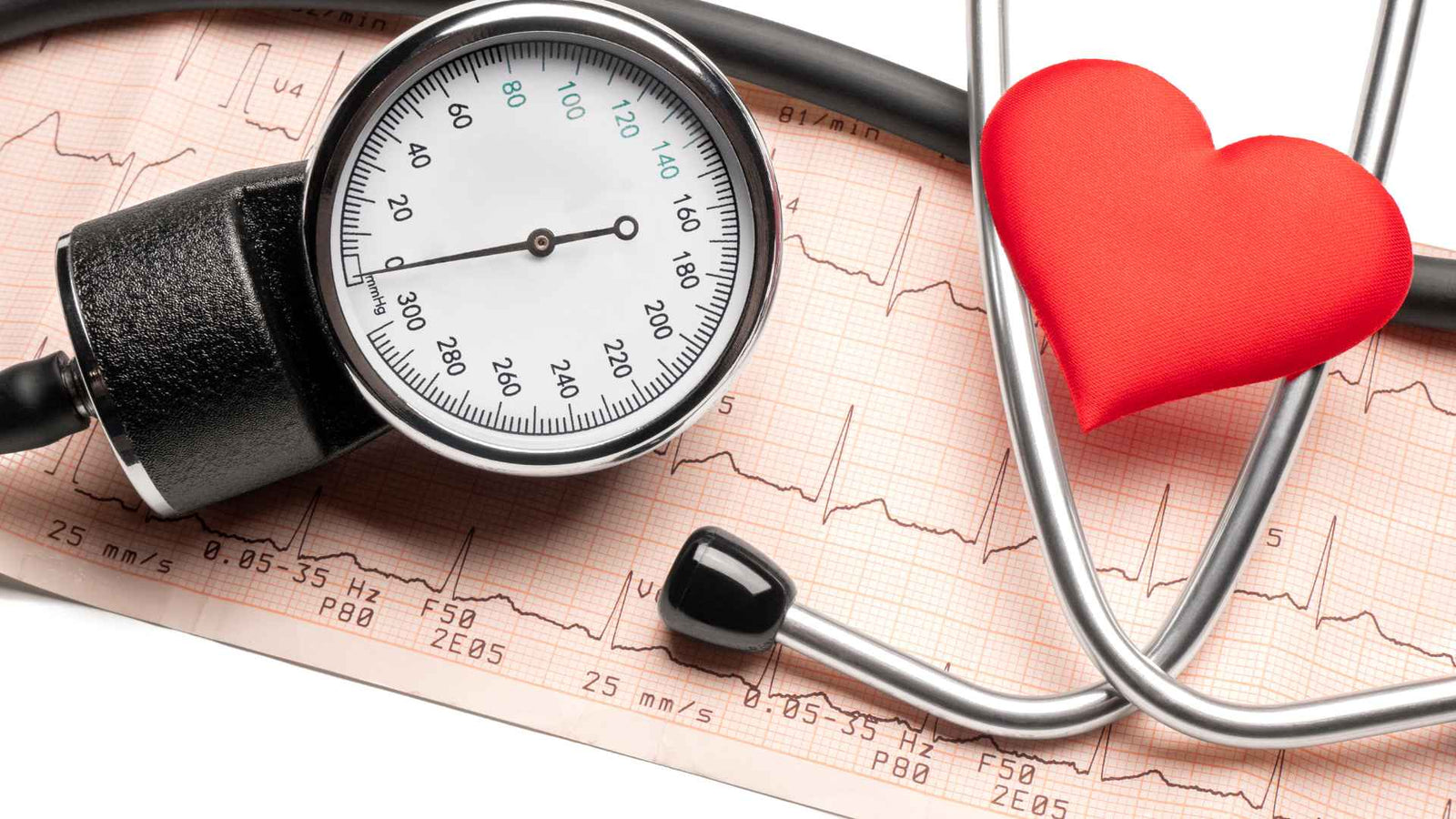A functional view of high blood pressure - with the gut as the key
What if your high blood pressure isn't (just) to do with stress, salt or genetics - but with your gut? In this episode, I explore the fascinating question of how disrupted gut flora can affect your blood pressure - and what role histamine, inflammation, short-chain fatty acids and the nervous system play in this. Ideal for anyone who is looking for holistic approaches and wants to understand more.
Highlights of the episode
- Why you should also keep an eye on your gut if you have high blood pressure
- 4 physiological mechanisms of how gut dysbiosis affects blood pressure
- Histamine as an underestimated stress factor for your cardiovascular system
- How you can tell if your microbiome is out of balance
- Which measures really help: Nutrition, diagnostics, probiotics
How this episode came about
This episode was triggered by a message from listener Michaela, who asked on Facebook about the link between gut dysbiosis and high blood pressure. Julia gratefully took up the question, as it shows once again how little known such connections are - even among specialists. This is exactly where the podcast comes in: Sharing knowledge, promoting personal responsibility and encouraging people to take a holistic approach to their health.
Yes, high blood pressure can indeed be linked to gut dysbiosis - even if many doctors don't have this directly on their radar. There are some exciting indications of a connection between the microbiome and blood pressure.
How is this connected?
Here are a few mechanisms of how a disturbed gut flora can promote high blood pressure:
Inflammation due to leaky gut
Impaired intestinal flora can make the intestinal mucosa more permeable ("leaky gut"). This allows components to enter the bloodstream that trigger systemic inflammation.
This inflammation in turn damages the inner walls of the blood vessels (the endothelium), which reduces vascular elasticity and increases blood pressure.
Lack of short-chain fatty acids
Healthy intestinal bacteria (e.g. Faecalibacterium prausnitzii, Akkermansia muciniphila) produce short-chain fatty acids such as butyrate.
These have a blood pressure-lowering effect because, among other things:
- reduce the tendency to inflammation,
- relax the blood vessels,
- and modulate the renin-angiotensin system (RAS for short).
That sounds a bit complicated, but in short, the RAS is like an internal regulatory system that controls your blood pressure. And this is influenced by butyrate so that it is not overactive.So: that it is not constantly set to "increase pressure".
If there is dysbiosis in the gut, the production of these protective substances, i.e. these butyrates, is often reduced.
Influencing the nervous system
The intestinal flora also communicates with the autonomic nervous system via the gut-brain axis. Studies suggest that an imbalanced microbiota activates the sympathetic nervous system (stress mode), which can lead to increased blood pressure.
Low Lactobacillus strains
Lactobacillus strains are often reduced in cases of gut dysbiosis - and this can activate inflammatory T cells, which in turn increase blood pressure.
This is super exciting, because very few people think about the immune system when it comes to high blood pressure! And finally, we come to what immediately came to my mind when I read the question:
Histamine
Histamine plays a very central role in intestinal dysbiosis and high blood pressure, which many people overlook!
Histamine dilates the blood vessels - sounds like it lowers blood pressure at first, but:
Chronically elevated histamine levels, as can occur in intestinal dysbiosis, result in permanent stimulation of the cardiovascular system → Palpitations, sweating, headaches, restlessness and intermittent increases in blood pressure are typical symptoms.
It becomes particularly critical if the body cannot break down histamine well (e.g. due to DAO deficiency or mast cell activation).
Histamineis also a stress messenger - and activates the sympathetic nervous system, which can also increase blood pressure.
Conclusion
➡️ Gut dysbiosis is not the sole trigger for high blood pressure, but it can play an important role - especially if there are no obvious causes such as obesity, lack of exercise or excess salt.
If someone is suffering from high blood pressure without a clear explanation, it is definitely worth taking a look at the gut: e.g. via a microbiome analysis, dietary changes, pre- and probiotics, anti-inflammatory measures, etc.
LINKS
21-day detox and intermittent fasting programMicrobiome analysis
Omega 3
Feed
Grow
Compens
As a podcast listener, you will receive a discount on our products
A 15% discount on your first purchase (applicable once, only on products not already discounted). The voucher code is valid in both Arktis BioPharma stores in Switzerland and Germany.Enter the voucher code podcast15 before completing your order.
ArktisBioPharma Shop Switzerland
Arktis BioPharma Shop Germany
Subscribe to the Darmglück podcast and follow us on social media
You don't want to miss an episode in the future and/or always stay up to date?Then subscribe to the Darmglück podcast in your favorite podcast app and follow us on social media.
Here are the links to my podcast in the most popular apps and to Arktis BioPharma on social media

























